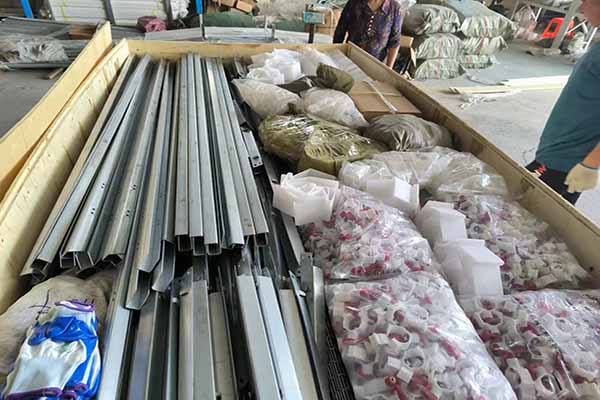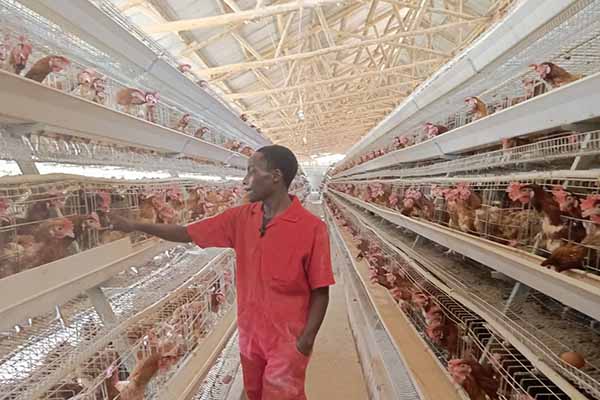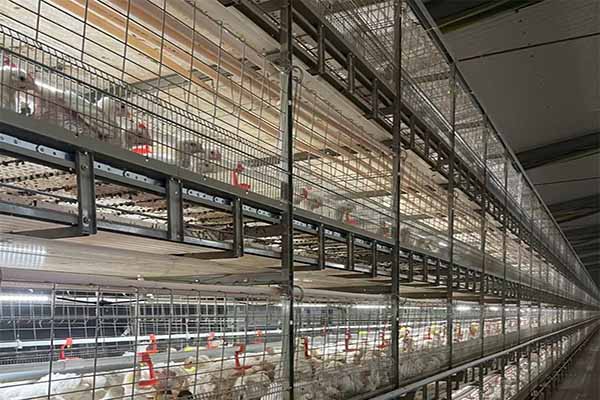Poultry Farming Cage Systems in Zambia: A Comprehensive Guide
Time : 2025-06-30
In Zambia, poultry farming has emerged as a crucial component of the agricultural sector. As the demand for poultry products continues to grow, so does the need for efficient and modern cage systems. This article aims to provide an in-depth analysis of poultry farming cage systems in Zambia, highlighting their importance, types, benefits, and considerations for adoption.
Importance of Poultry Farming Cage Systems in Zambia
Effective poultry farming practices are essential for maximizing productivity and ensuring animal welfare. Poultry cage systems play a vital role in achieving these goals. They offer several benefits that make them a preferred choice for many farmers in Zambia.

Increased Productivity
Poultry farming cage systems are designed to maximize space utilization, ensuring that birds have enough room to move around and access feed and water. This, in turn, leads to increased productivity as birds can grow faster and lay more eggs.

Improved Animal Welfare
Cage systems are designed to provide a comfortable and safe environment for poultry. They help minimize the risk of injury and disease by reducing the chances of overcrowding and fights among birds. Additionally, regular maintenance of the cages ensures a clean and hygienic living environment.
Enhanced Biosecurity
Poultry cage systems are effective in preventing the spread of diseases and pests. The confined space allows for easier monitoring and control of diseases, minimizing the risk of outbreaks.
Types of Poultry Farming Cage Systems in Zambia
There are several types of poultry farming cage systems used in Zambia, each designed to cater to specific farming needs. The following are some of the most common types:
Battery Cages
Battery cages are the most common type of cage system used for egg-laying hens. These cages are made of metal and provide a fixed space for each bird. They are suitable for high-density farming as they maximize space utilization.
Walk-in Cages
Walk-in cages are ideal for broiler production. They provide enough space for birds to move around and access feed and water. These cages are also suitable for pullets and young chicks.
Layer Cages
Layer cages are similar to battery cages but are larger and provide more space for each bird. They are designed to accommodate layer hens and allow for better egg collection.
Free-Range Cages
Free-range cages combine the benefits of confinement with the natural living conditions of poultry. These cages allow birds to move freely while still being protected from predators and disease.
Benefits of Adopting Poultry Farming Cage Systems in Zambia
Adopting poultry farming cage systems in Zambia offers several benefits, including:
Economical Advantages
Cage systems help reduce feed consumption, as birds have easy access to feed and water. Additionally, they minimize the risk of disease outbreaks, thereby reducing veterinary costs.
Environmental Benefits
By minimizing the spread of diseases and pests, cage systems contribute to a healthier environment. Furthermore, proper waste management within the confined space reduces the risk of pollution.
Enhanced Livelihoods
Efficient poultry farming practices using cage systems can lead to increased incomes for farmers. This, in turn, can improve their standard of living and contribute to the overall economic development of the country.
Considerations for Adopting Poultry Farming Cage Systems in Zambia
While adopting poultry farming cage systems offers numerous benefits, there are several factors to consider to ensure successful implementation:
Quality of Equipment
Investing in high-quality cage systems is crucial for ensuring the health and well-being of poultry. Poor-quality equipment can lead to accidents and increase the risk of disease transmission.
Training and Expert ise
ise
Proper training and expertise are essential for the successful operation of poultry farming cage systems. Farmers should consider attending training programs or hiring experts to assist with the setup and maintenance of the systems.
Waste Management
Effective waste management is essential for maintaining a clean and hygienic environment within the cage systems. Proper disposal of waste can also help minimize the risk of pollution.
Regular Maintenance
Regular maintenance of poultry farming cage systems is crucial for their long-term performance and lifespan. This includes cleaning, inspecting, and repairing any damage or wear and tear.
Conclusion
Poultry farming cage systems are a valuable tool for increasing productivity, improving animal welfare, and enhancing the overall success of poultry farming operations in Zambia. By carefully considering the type of system, investing in quality equipment, and ensuring proper training and maintenance, farmers can maximize the benefits of adopting these systems.
, , , ,











